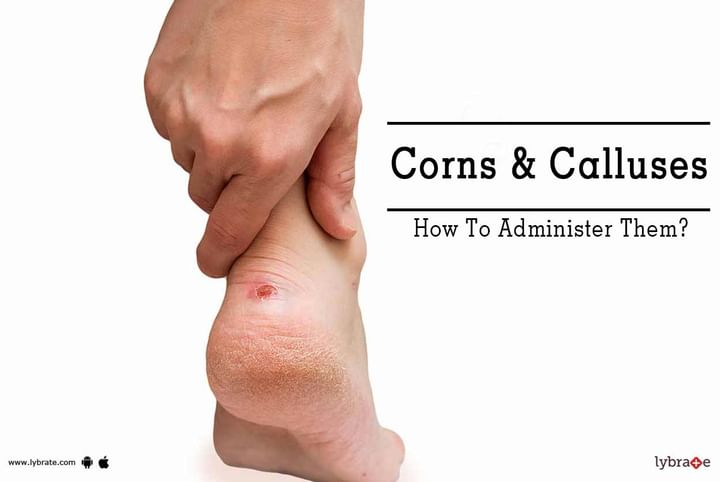Corns & Calluses - How To Administer Them?
Corns and calluses are defined as thickened and hardened areas of the skin which are formed due to excess pressure, friction or rubbing in a particular area. They generally form at the bottom of the feet and can cause discomfort and pain while walking. Corns usually form on the sides and tops of toes. There are several variants of corn such as hard corn, soft corn and seed corns. Calluses typically form in areas which undergo high friction. It can appear on hands and feet. Read on to find more about corns and calluses.
Causes
1. In some cases, corns or calluses may form due to improper walking motion but in most cases, corns and calluses form due to wearing shoes which fit in an improper manner.
2. High heels, in particular, are a major reason for the formation of corns and calluses. Other reasons include foot deformities or wearing shoes and sandals without socks.
3. Corns and calluses have a risk of being infected by bacteria which causes the infected region to secrete pus or fluid.
Symptoms
There are different types of corns and calluses and each of them have different symptoms during their formation.
1. A callus is a small patch of dead skin which can form anywhere in the body but usually in places which undergo friction.
2. A hard corn is a patch of hard skin which is located outside the little toe or on top of a toe.
3. A soft corn is a sensitive red patch of skin which is typically found between toes.
4. A seed corn is a painful patch of dead skin which typically forms on the ball of the foot or on the heel.
Treatment
If you have developed a corn or a callus it is advisable to consult a doctor as they can correctly differentiate between warts and calluses. Use of moleskin around the corn or callus usually reduces the pressure from the affected region. Oral antibiotic medication can also be prescribed by your physician. Certain moisturizing creams also help to treat corns and calluses. Opt for stronger moisturizing creams after consulting your doctor if regular ones are not helping. In certain instances, corns and calluses may need to be surgically removed.


+1.svg)
